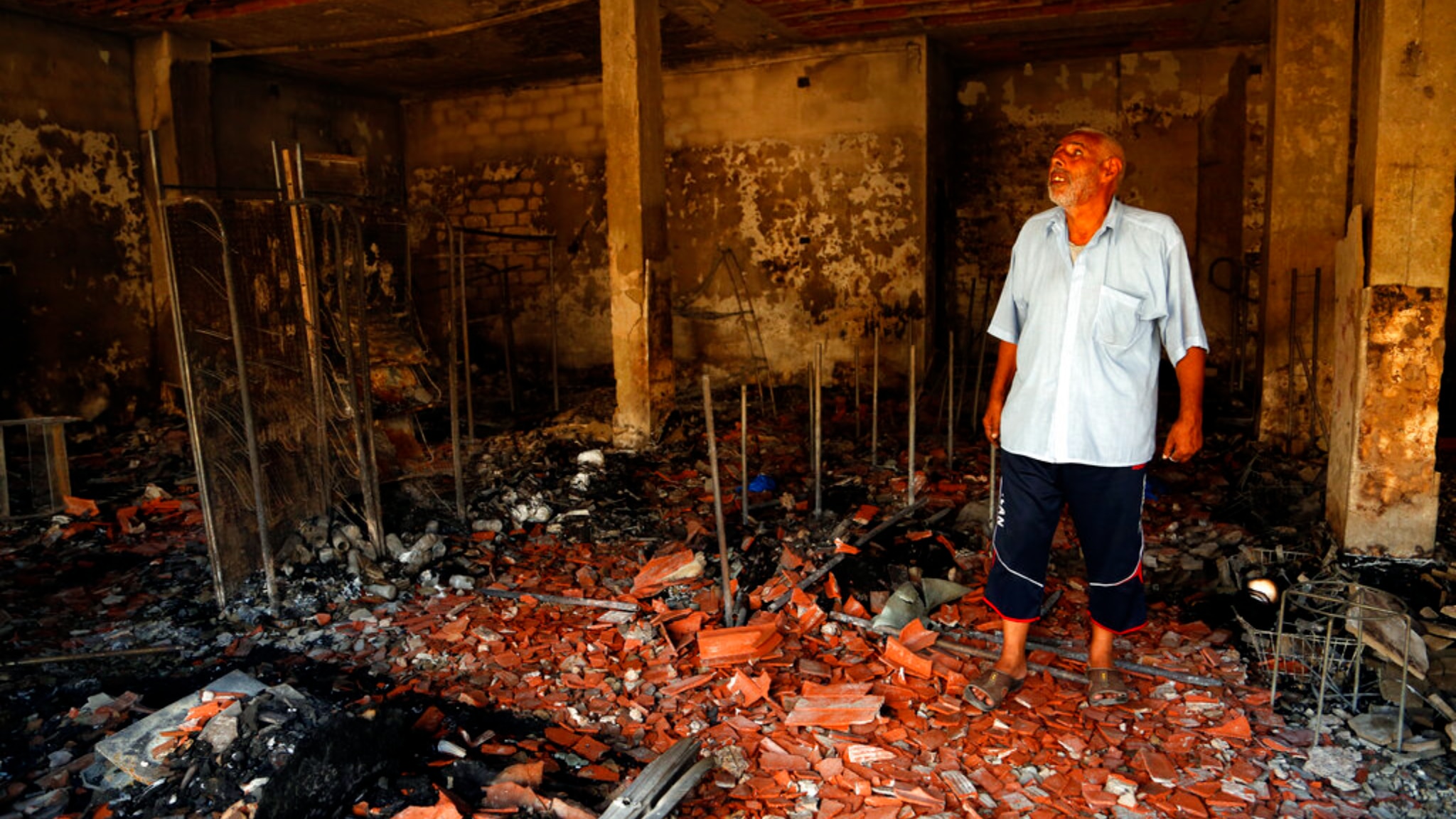Daylight illuminates the rubble of the armed battle in Tripoli that began Friday evening between supporters of rival governments, one of the most violent clashes in the last two years in the capital.
According to the Ministry of Health of the government of National Unity, the dead are at least 32 dead and 159 injured.
The cars burned in the streets are a sign that
the civil war
that has been shaking Libya intermittently for 11 years has had a painful new chapter.
Only a month ago the assault on the
Parliament of Tobruk
.
A country still in chaos awaiting elections is devastated by the rivalry between two opposing ideas of government, that is, on the one hand, the militias loyal to the premier appointed by the parliament,
Fathi Bashagha
, and on the other, those who support the prime minister recognized by the
UN
,
Abdel Hamid Dbeibah
.
The pro-Bashaga already established in the capital are led by the "Brigade of the revolutionaries of Tripoli" led by Haitem Tajouri, while the pro-Dbeibah are supported by the "Stabilization Support Force" of Abdelghani Al-Kikli, known as "Ghnewa".
"The pro-Bashagha armed groups led by Haitem Tajouri were defeated in the center of Tripoli while the Juwaili di Zintan brigades still resist in the south of Tripoli", writes the Libya Observer website on twitter, giving a partially positive picture for Prime Minister Abdel Hamid Dbeibah who in the evening takes selfies with his supporters while visiting the areas of clashes in Tripoli as a sign of victory over the attackers.
"We call on all Libyan men and women, in Tripoli and in all cities, to take a serious stand against anyone who wants to start a war to obtain or preserve personal gain," Prime Minister Abdul Hamid Dbeibah asked at the beginning of the clashes.
AP Photo
Libya, the day after the clashes in Tripoli in the night between 27 and 28 August
The fighting unleashed by Bashagha's attempt to take control of the capital culminated in the night.
The capital was in chaos for hours, seven points in the city that saw the use of heavy weapons, "public and private buildings destroyed," reported Al Jazeera.
Four vehicles of the pro-Bashagha forces were destroyed by a drone attack piloted from the operations room of the Dbeibah militias.
On Bashagha's side, there would be the shadow of General
Khalifa Haftar
even if there is no evidence that the Libyan national army supported the capture of the capital.
The general had tried in vain to conquer Tripoli between April 2019 and June 2020 also in the context of various international appetites and support that have undermined the country since the death of Colonel
Gaddafi
in 2011. Russia, Egypt and the Emirates, France, more or less openly support the Haftarian east to which Bashagha is so far relegated, while above all Turkey, Algeria and the Emirates protect and support Dbeibah.
Bashagha had already tried in vain to enter Tripoli in May, with what he called "the great fishing", a "military" operation against the militias of Dbeibah, whose government is "strenuously attached to power" despite the parliament having declared it. already lapsed in February.
The premier installed by the UN to organize elections last December, then postponed indefinitely, accused
Bashagha
of refusing negotiations to organize the electoral round by the end of the year.

